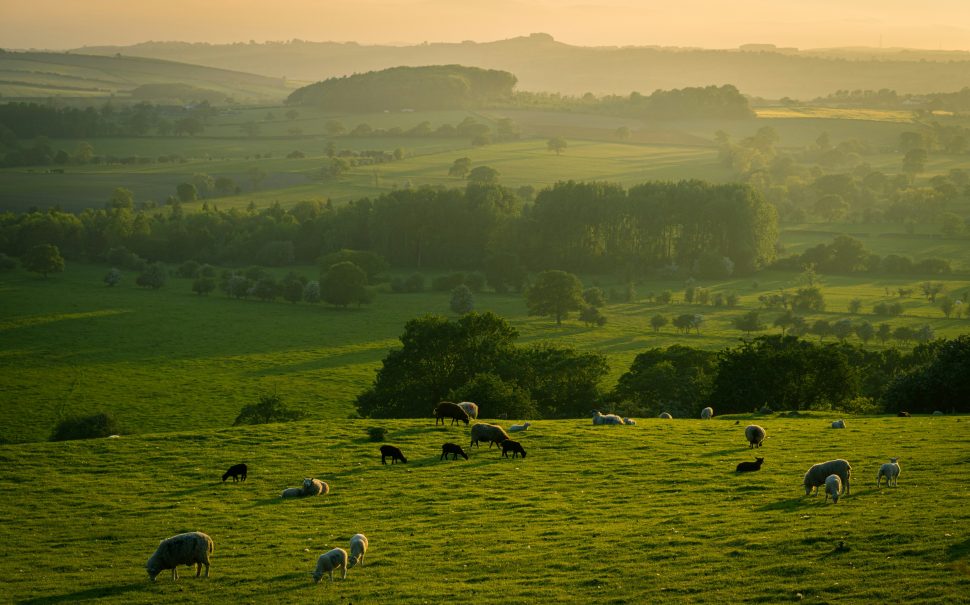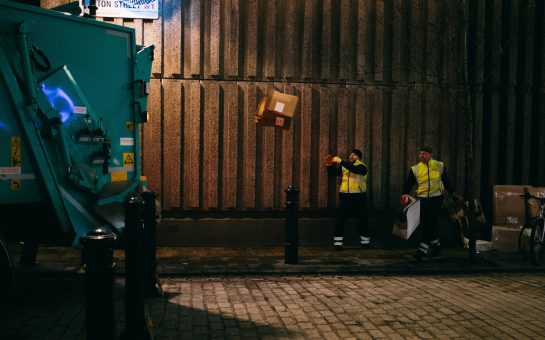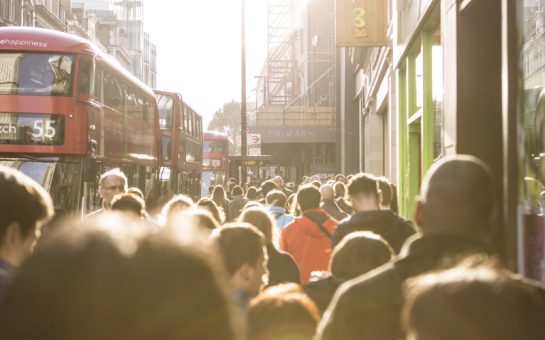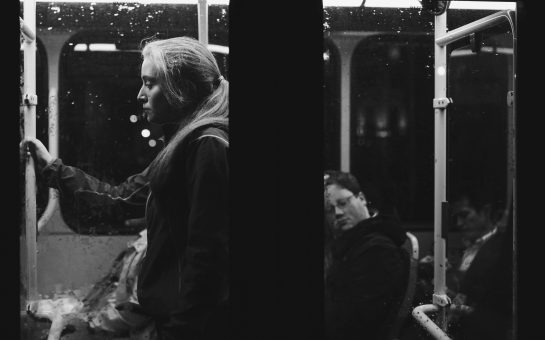With green jobs on the rise according to new Office for National Statistics (ONS) data, what is a green job?
The ONS found that there was an 8.4% increase in UK employment in green jobs, with the estimated figures rising from 589,600 full-time equivalents (FTEs) in 2021 to 639,400 FTEs in 2022.
That means 2022 overtook 2021 as a record year for green jobs, which had previously been in decline, particularly during Covid-19.
But what is a green job, really?
Green jobs have long been difficult to define due to the availability of data and coherence across different industries.
Defining just how green a job is in practice can be challenging because of the complicated nature of our daily acts and their impact on climate change.
While someone may work in environmental education for example, if they have to fly often as part of their job, the net impact of their role on the environment might not be as green as you would think.
Following a 2022 ONS survey, a definition drawn up by the government’s Green Jobs Taskforce has come to define what is meant by green jobs in the UK.
Green jobs can be defined as: ‘Employment in an activity that directly contributes to – or indirectly supports – the achievement of the UK’s net zero emissions target and other environmental goals, such as nature restoration and mitigation against climate risks’.
Perhaps surprisingly, for a job to be classified as green it doesn’t necessarily need to be in the green energy or environmental sector.
A green job can be any role that either: works to reduce the production of pollution and waste, or that has a naturally low environmental impact.
Jobs that fall into these categories that may be surprising are: carers, teachers, and cleaners, roles that do not require excessive travel and are generally very low on the scale of pollution.
What do the new ONS figures show?
The progress made in the green economy with the latest record figures in green jobs is promising, but some argue that these developments do not negate the lack of action needed to be taken by the Government in order to reach their targets of hosting two million green jobs in the UK by 2030.
Crucial to the Government’s commitment to net zero by 2050, the green economy and labour market is in great need of investment and support.
Many have argued that the government has not taken enough action to allow this to happen.
While the ONS’ latest experimental figures show that the number of people employed in green jobs in the UK has risen by almost 20% from 2020 to 2022, there are still 1.36 million jobs to be supported in the UK by 2030 for the government to meet the targets it set in 2021 as part of the strategy for net-zero.
According to the ONS data, the biggest increase in green jobs in 2022 came under sectors of energy efficient products and waste, with roughly 116,100 and 138,900 FTE people employed in those areas respectively.
Large increases were also seen in green jobs in other areas, including 10,000 jobs in environmental consultancy, 13,000 in renewable energy and 16,000 in low carbon transport.
How have people found their way into green jobs and what is it like working in one?
Libby Drew, Director of the Knepp Wildland Foundation said: “Over the past four or five years I’ve noticed and been privy to quite a lot of investigations in journalistic work within the humanitarian sphere, focused on climate, land use and food systems and the shocks and reverberation across the world of our catastrophic environment that we’ve backed ourselves into the corner in.
“I think from my side it was almost horror in bearing witness to the stories that were coming through to the organisations I was working with.”
The Knepp Wildland Foundation is the first major lowland project in England.
The 3,500 acre Knepp Castle Estate based in West Sussex, previously used for meat and dairy farming, was transformed into a trailblazing rewilding project after the owner decided to sell off its livestock and farm equipment to clear its debts.
After receiving Countryside Stewardship funding to restore the 350-acre parkland around the mansion in 2001, owner Charles Burrell set on the path to rewild the entire estate.
Today, the Knepp Wildland Foundation is home to many rare species including turtle doves and barbastelle bats and is the place where, in 2020, white stork were observed raising chicks in the UK for the first time in six hundred years.
As the director of the Knepp Wildland Foundation, Drew’s work focuses on communicating the successes of Knepp, the stories of rewilding and engaging the wider public with the missions of the project.
Drew said: “I think one of the great things is now in front of my very eyes I’m seeing a green sector that is about to ride a brand new wave of investment.
“There are more jobs than there have ever been before and those jobs are complex and interesting, those jobs are bridging roles that are about interdisciplinary work.
“But then you’ve got a greater need for specialists as well right across the board, it’s bringing together spheres of society that weren’t normally associated with the green sector.
“Of course your life sciences ecologists are critical but you also have a need for people who understand farming and agriculture, energy and natural resources, who can speak the languages of utility companies and highways agencies, who understand about building green and designing green infrastructure.
“You’ve got this incredibly complex web of need and demand that sits around the green sector and when you start to look at it like that then the silo starts to break down.
“You start to stop seeing it as green and just start to think about it as future work.
“What are going to be the priority jobs? It’s going to be sustaining the planetary resources and they’re going to be found right across society, so I think that idea of green jobs will be quite quickly retired and we’ll start thinking about them as priority jobs.”
Green small businesses
A space in the green economy that wasn’t covered so heavily in the recent ONS data was the small businesses that have been created with the hopes of bringing about a circular economy.
Ameenah Begum, the founder of Planet Friendly Paint, started a social enterprise that creates paint products out of cosmetic waste materials.
Following a project for her university degree, Begum decided to develop the idea further after deciding that she wanted to tackle the issue of cosmetic waste across Europe.
Prior to starting her green business, Begum spent time working in roles where she had a front row seat to a lot of the manufacturing processes of the products that her employers were creating.
Begum said: “There was so much plastic that was just going to the bin. I remember making a suggestion to them while I was there like do you think there’d be an opportunity for us to think about like some sustainable options?”
After her suggestions weren’t taken onboard, Begum started thinking about future job roles.
She said: “I started to look at like my own unsustainable habits and then seeing what I could do about that on a smaller scale and then I discovered that there was a huge cosmetic waste problem that I wanted to tackle.
“I wanted to make it more fun and include what used to bring me joy which was art.
“I was quite passionate about not just the idea but why I was doing the idea, how we could make a real change from the bottom if not the top. I’m just one case study of how we can work within a circular economy.”
Ecology and conservation
As well as tackling land management in the case of Knepp and sustainable solutions to waste in the small business sector, a lot of green jobs that are crucial to combatting climate change focus on the natural world on a more intricate level.
Connor Sullivan, a current PhD student at the University of Glasgow studying amphibian disease ecology from Scotland to Ecuador, explained the importance of studying ecosystems and the animals that live within them.
Sullivan said: ”Amphibians are one of the most threatened vertebrates due to disease and various other human-led factors which are impacting them across the world such as habitat destruction or land use change, pollution, overexploitation, trade and climate change.”
Having worked on various projects centred around nature outreach and conservation in the past, he is aiming towards a career in research, hoping to use his experience to study ecological systems in urban areas, having spent most of his life living in London.
While the number of green jobs is rising, some areas of the green economy can be difficult to access.
He said: “I feel like lowering some of the barriers to entry level jobs especially in ecological consultancy roles would have a big impact because they’re the most common roles available to graduates interested in wildlife.”
Sullivan also thinks the wider issue of climate awareness among the public is a barrier.
He said: “Do we see enough in the media on climate change? Maybe once in a blue moon when COP comes up or Extinction Rebellion’s making a statement.
“I think greater community engagement and outreach is high up there, especially in busy city environments where people have got so much going on, there’s such a diversity of cultures, you’ve got loads of second and third generation immigrants whose number one priority is supporting their families.
“They may not be able to connect with their green spaces or the nature that they’ve now got surrounding them because of this lack of historic connect with it.
“The Nature Premium campaign that I’ve been involved with that focuses on making nature engagement through school mandatory would be huge.
“If kids could connect with nature in their local spaces I think that would make a massive difference in terms of people’s understanding of nature and the wider impacts on climate change and biodiversity loss.”
Featured photo: Illiya Vjestica on Unsplash





